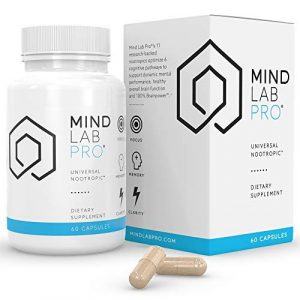The best nootropics for musicians are here to enhance your brain functions and help you give your best at your next performance!
In this review of Mind Land Pro, I’ll tell you why it works so well.
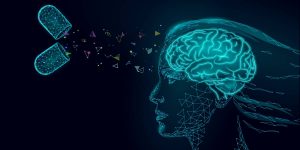
Nootropics
A nootropic (also known as “miracle drug”, and “brain steroids”) is in a form of a pill, powder, or tablet which purpose is to enhance parts of your brain responsible for creativity, focus, concentration, mood, stress, longevity, etc. There is no single nootropic that cures all desired traits that will solve your problem.
There are a lot of nootropics to choose from that helps you to acquire the desired enhancement you want. It can be used to enable yourself to focus on that work you dread, confront your bad-natured boss, alleviate your mood in a stressful environment, and maintain the health of your brain.
There is still a stigma about nootropics because it is not natural and might cause any unprecedented side effects. Believe me, I am one of those people. This is why this article will be beginner-friendly and as much as possible instructive especially for musicians.

What’s in it for a musician?
A musician is a composer, conductor, or performer of music according to Merriam-Webster’s definition. A musician can be people who write music, play instruments, sings, conducts, and compose. To be a great musician needs to practice, to have creativity, and the sole purpose of creating good music. For that reason, that is what separates a mediocre from a great musician.
According to Haruki Murakami, author of Kafka on the Shore, there are three traits needed for a novelist or a learner.
- Persistence
- Concentration
- Talent
Persistence because you need to practice long hours of your music to be great at it. Concentration because in concentration you will really understand and remember what you are doing and acknowledge your mistake. Talent, there are naturally talented people but talent will only be fueled through persistence and practice. We will test this out if this applies also to musicians.
From a nootropic standpoint, these are the enhancement you’ll need for your brain to test the three traits needed to be great.
- Memory
- Motivation
- Stress resistance
- Creativity
- Focus and Concentration
- Alleviates anxiety
With the list above, we’ll try and check out if there are really nootropics out there that have those lists above. Proceed and read more below.
Best Nootropic Ingredients for Musicians
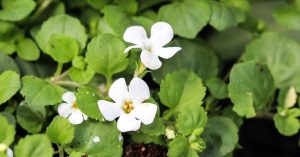
Bacopa monnieri
Bacopa monnieri is a plant that naturally grows in India. It is part of an ancient medical system known as Ayurvedic medicine in India.
Bacopa monnieri is used before, even now, to improve brain activities. It was deeply researched by scientists even until this day and continuously prescribed by doctors because of its benefits.
The advantage of bacopa monnieri are:
- The herb’s long history of application gives us data on its possible effects in the long run.
- Used as a medicine for people with Alzheimer’s disease (Uabundit et al., 2010)
- Still an ongoing research to fully realize its true potential
- Little to no side effects when used at the right dosage
- Still effective when mixed with other ingredients
- Improves memory (Morgan & Stevens, 2010) and reduce anxiety
- Alleviates stress
The mentioned advantages primarily focus on cognitive abilities. There are a lot of benefits when taking Bacopa monnieri one of which is it has anticancer properties (Mallick et al., 2015; Mishra et al., 2006; Smith et al., 2018).
Bacopa monnieri has its disadvantages. It is not a perfect herb and is not used to treat all manners of diseases. Remember to take Bacopa monnieri at the correct dosage. The disadvantages of Bacopa monierri are:
- Nausea
- Stomach cramps
- Diarrhea
- Not recommended for pregnant women
- It may interact with other certain medications
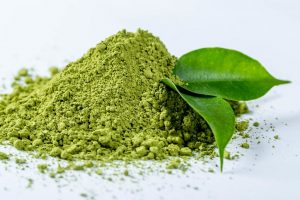
L-Theanine
Theanine is an amino acid found on plants and was originally constituted with Camellia sinensis. L-theanine was approved by FDA as a safe supplement for your diet.
L-theanine is prevalently taken in a form of tea and is widely known for its benefits. Tea is a wide and big business which is consumed by all people in different parts of the world. It alleviates your mind and is taken for unwinding purposes. Here, we’ll discover what the research says about the benefits of L-theanine in other cognitive functions.
The advantages of L-theanine are:
- Cheap
- FDA approved
- Decrease blood pressure
- Relaxation without drowsiness (Juneja et al., 1999)
- Alleviate stress/ anxiety (Kimura et al., 2007)
- Increased attention performance and reaction time (Higashiyama et al., 2011; Haskell et al., 2008)
L-theanine has a lot of benefits that are fitting for a musician. It targets a lot of cognitive functions a musician should desire to enhance. It is FDA approved and declared safe, it is cheap, and increases your attention performance and reaction time. The benefits must be taken advantage of and should be one of your dietary supplements.
There are no side effects of L-theanine when taken at the right dosage. This is why FDA approves L theanine as a safe nootropic for intake. If there are any unforeseen effects, please consult a doctor immediately.
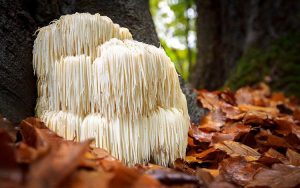
Lion’s Mane mushroom
Hericium erinaceus also called lion’s mane mushroom, has healing properties that attract a lot of scientists about its chemical composition. They spent decades researching and understanding the science behind the mushroom.
Lion’s mane mushroom is found in Europe, Japan, East Asia, and the United Kingdom. Due to the wide habitat of the mushroom, it was called with different names such as Yamabushitake, Houtou, hedgehog mushroom, bearded tooth mushroom, dear tail mushroom, monkey’s head mushroom, etc.
Yamabushitake has a lot of varying nutrients such as protein, carbohydrates, crude fiber, low fats, ash, and amino acids. It is a rare and edible mushroom that grows on branches of a dead or living tree at 18-24 degrees centigrade. There are strict implementations of the mushroom because of its rarity.
These are the benefits of the lion’s mane mushroom.
- Anticancer, antihypertensive, antidiabetic, antimicrobial, antioxidant
- Ischemia (restriction in blood supply to tissues)
- Wound-healing properties
- Immunomodulation
- Gastroprotective
- Neuroprotective (Wong et al., 2012)
There are severe cases of contact skin dermatitis and difficulty breathing (Maes et al., 1999; Nakatsugawa et al., 2003).
- If you’re allergic to mushrooms then don’t take this.
Remember that lion’s mane mushroom is rare and has high demand because it is edible and is used as a medicine. If ever you’ll find a supplement or food with lion’s mane as one of its content, then it is advisable to take it.

Rhodiola rosea
Rhodiola rosea is an adaptogen that is heavily researched by Russians. The Soviets spent decades researching adaptogens. The result of their research had never been published so the data about its benefits are dubious.
Rhodiola rosea, commonly known as golden root, naturally grows in Arctic regions in Europe, Asia, and North America. Rhodiola rosea is classified as an adaptogen which are plants that resist all kinds of stressors such as physical, chemical, or biological.
The advantage of Rhodiola rosea are as follows:
- Reduction of fatigue resulting to increase concentration (Olsson et al., 2009)
- Used to cope with stressful life (Ap & Rd, 1998; Darbinyan et al., 2000)
- Reduces cortisol levels (Olsson et al., 2009)
Rhodiola rosea is still undergoing research because conflicting reviews of research may be due to methodologies. There are some positive feedbacks on rats as a research subject. There is research that results in no changes when taking Rhodiola rosea and it would even worsen the situation (Punja et al., 2014). The science of the plant is evident but it needs more further research.
Rhodiola rosea has little to no drastic effect as long as it is taken at the right dosage. The only disadvantage is some products are not FDA approved due to no proof of safety and efficacy
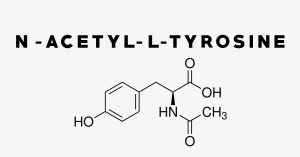
N-Acetyl-L-tyrosine
N-Acetyl-L-tyrosine or NALT is an amino acid in the form of L-tyrosine. Once it goes into the blood circulation, it has a greater effect than L-tyrosine because of the addition of the acetyl group.
NALT when broken down in the kidneys will have theoretically the same benefits as L-tyrosine. NALT boosts thyroid production which improves physical and cognitive functions (Coull et al., 2015). Other benefits of NALT are listed below.
- Enhances working memory
- Increase in Focus and Concentration
- Mood
- Anti-depressant
- Improves executive function in those with ADHD
As mentioned above, there are a lot of benefits with NALT that are essential for a musician. This will help you maintain your focus when performing or practicing. This also helps you to alleviate your mood when you feel not practicing at all. These are the potential benefits of NALT that will give you an edge in your day-to-day life.
NALT also has a documented side effect. Essentially, NALT is a safe nootropic that is easily one of your choices to consume. There are only mild cases but NALT needs to be taken at the right dosage for no side effects to occur.
- Not recommended for hyperthyroid people
- A higher dosage may cause, stomach cramps and migraines
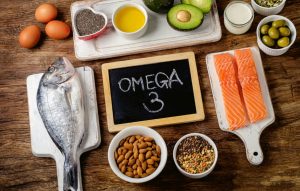
Omega-3 Fatty Acids
Omega 3 are amino acids that are found mainly on fish, nuts, and plants. There are three types of omega-3 fatty acids and they are ALA, DHA, and EPA. There is a lot of research behind this nootropic discovering a lot of health benefits. This is a highly likely recommended nootropic to take because of low risk and high reward solution.
This is the long list of benefits for Omega-3 Fatty Acids
- Deficiency of Omega-3 results in Parkinson’s disease. (Cardoso et al., 2014)
- Slows development of dementia
- Keep your eyes healthy
- Helps to sleep better
- Used to treat depression (Perica & Delaš, 2011)
- Brain and heart health
The Canadian Food Inspection Agency acknowledges the benefits of the DHA omega-3 fatty acids on development in the brain and eyes for kids. This is a proven nootropic that has a lot of benefits. This is used to treat people with brain decline which means it also helps improve the health of your brain.
Your normal food intake in a day probably has a low omega 3 content. Diversify your diet and include foods with omega 3 to ensure the health benefits you can get. The foods with high omega 3 content are
- Salmon/Sardines/Cod
- Tuna
- Scallops
- Sea Algae/Krill Oil
- Fortified Eggs
- Hemp/Flax/Chia Seeds
There are warnings and precautions that needed to be said about Omega-3 fatty acids. There are downsides of Omega-3 that you must know of. These are the warnings that must be known:
- There are fishes with high mercury levels. (Be careful especially for pregnant women.)
- Have a greater risk of prostate cancer when taking supplements in excess.
Best Nootropic Products for Musicians
Mind Lab Pro
Mind Lab Pro is a verified and tested product undergoing immense research under state-of-the-art facilities in New Jersey, USA. To have certain certifications, the ingredients are isolated and quarantined to ensure and maintain the quality of the product before entering the manufacturing facilities.
Mind Lab Pro has a lot to offer for musicians. It has ingredients that are not banned and are vegan-friendly. It is basically for brain enhancement and mood alleviating. This product supports memory, concentration, and coping with tasks under stress, motivation, and creative problem-solving.
The ingredients not mentioned above are Suntheanine L-Theanine, Maritime Pine Bark Extract, and Vitamin B6, B9, and B12. These are blended for brain optimization for efficient mental functions in stressful and mentally demanding environments.
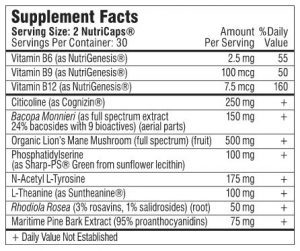
These are the certifications that Mind Lab Pro has received:
- Non-GMO
- Soy Free
- Allergen-Free
- Gluten-Free
- Caffeine-free
- Vegan friendly
- Non-irradiated
- Synthetic additive-free
- Artificial preservative-free
- Banned substance free
The ingredients used are all backed with research and have tremendous amounts of benefits even taking one sole ingredient alone can give you benefits. The product is applicable not only for vegans but also for different varieties of people due to its gluten-free, allergen-free, GMO-free, caffeine-free verifications. The product has a lot of good reviews from professionals, competitors, and students.
Some reviews show the contradictions. Mind Lab Pro is not curated to all types of person and there are side effects. The downside of Mind Lab Pro are:
- Underdosage of ingredients
- Expensive
- Depression
- Effects are only dependent on your type of body
Mind lab pro’s side effect is it can cause cholinergic depression depending on your body. Cholinergic depression is when there is too much choline content (Dagytė et al., 2011). If the effects are not that effective to your type of body, it is recommended to take the ingredients alone than Mind lab pro. Rhodiola rosea is dosed at 50 mg when the standard dosage is 250-300 mg which shows it’s under dosage.
To take the standpoint as a consumer, Mind Lab Pro is a good start for beginners to use as a nootropic. The ingredients are clean and the product has a lot of certifications. Given that you can afford the price, Mind lab pro is a good starting choice.
Learn more about Mind Lab Pro!
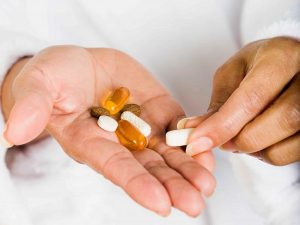
Precautions and Warnings
This is a brief explanation of every recommended nootropic mentioned. This is not a complete explanation and some things are omitted or unmentioned such as recommended dosage. Several benefits are not mentioned because this article caters only to musicians. Some side effects of every nootropic might not be listed due to low data.
Do your research before taking in each nootropic. If there are complications when taking a nootropic, please consult a physician immediately. This article has a biased preference for nootropics and did not include any synthetic drugs. I only include the nootropics that are not prohibited in Anti-Doping Policy.
The nootropics mentioned are heavily researched before the publishing of this article. They are also evidence-based and are highly recommended for musicians. Remember to diversify your choice of nootropics because as your consumption increases, the effects will decrease due to increased resistance.
Be varied in using nootropic and be wary. You can take the ingredients as a single or mixed with other ingredients if ever the product does not suit you. Check the label and research the recommended dosage for lasting effect.
References
1. Mallick, M. N., Akhtar, M. S., Najm, M. Z., Tamboli, E. T., Ahmad, S., & Husain, S. A. (2015). Evaluation of anticancer potential of Bacopa monnieri L. against MCF-7 and MDA-MB 231 cell line. Journal of Pharmacy & Bioallied Sciences, 7(4), 325–328. https://doi.org/10.4103/0975-7406.168038
2. Mishra, S., Srivastava, S., Tripathi, R. D., Govindarajan, R., Kuriakose, S. V., & Prasad, M. N. V. (2006). Phytochelatin synthesis and response of antioxidants during cadmium stress in Bacopa monnieri L◊. Plant Physiology and Biochemistry, 44(1), 25–37. https://doi.org/10.1016/j.plaphy.2006.01.007
3. Morgan, A., & Stevens, J. (2010). Does Bacopa monnieri improve memory performance in older persons? Results of a randomized, placebo-controlled, double-blind trial. Journal of Alternative and Complementary Medicine (New York, N.Y.), 16(7), 753–759. https://doi.org/10.1089/acm.2009.0342
4. Smith, E., Palethorpe, H. M., Tomita, Y., Pei, J. V., Townsend, A. R., Price, T. J., Young, J. P., Yool, A. J., & Hardingham, J. E. (2018). The Purified Extract from the Medicinal Plant Bacopa monnieri, Bacopaside II, Inhibits Growth of Colon Cancer Cells In Vitro by Inducing Cell Cycle Arrest and Apoptosis. Cells, 7(7). https://doi.org/10.3390/cells7070081
5. Uabundit, N., Wattanathorn, J., Mucimapura, S., & Ingkaninan, K. (2010). Cognitive enhancement and neuroprotective effects of Bacopa monnieri in Alzheimer’s disease model. Journal of Ethnopharmacology, 127(1), 26–31. https://doi.org/10.1016/j.jep.2009.09.056
6. Haskell, C. F., Kennedy, D. O., Milne, A. L., Wesnes, K. A., & Scholey, A. B. (2008). The effects of l-theanine, caffeine and their combination on cognition and mood. Biological Psychology, 77(2), 113–122. https://doi.org/10.1016/j.biopsycho.2007.09.008
7. Higashiyama, A., Htay, H. H., Ozeki, M., Juneja, L. R., & Kapoor, M. P. (2011). Effects of l-theanine on attention and reaction time response. Journal of Functional Foods, 3(3), 171–178. https://doi.org/10.1016/j.jff.2011.03.009
8. Juneja, L. R., Chu, D.-C., Okubo, T., Nagato, Y., & Yokogoshi, H. (1999). L-theanine—A unique amino acid of green tea and its relaxation effect in humans. Trends in Food Science & Technology, 10(6), 199–204. https://doi.org/10.1016/S0924-2244(99)00044-8
9. Kimura, K., Ozeki, M., Juneja, L. R., & Ohira, H. (2007). L-Theanine reduces psychological and physiological stress responses. Biological Psychology, 74(1), 39–45. https://doi.org/10.1016/j.biopsycho.2006.06.006
10. Maes, M. F., van Baar, H. M., & van Ginkel, C. J. (1999). Occupational allergic contact dermatitis from the mushroom White Pom Pom (Hericium erinaceum). Contact Dermatitis, 40(5), 289–290. https://doi.org/10.1111/j.1600-0536.1999.tb06073.x
11. Nakatsugawa, M., Takahashi, H., Takezawa, C., Nakajima, K., Harada, K., Sugawara, Y., Kobayashi, S., Kondo, T., & Abe, S. (2003). Hericium erinaceum (yamabushitake) extract-induced acute respiratory distress syndrome monitored by serum surfactant proteins. Internal Medicine (Tokyo, Japan), 42(12), 1219–1222. https://doi.org/10.2169/internalmedicine.42.1219
12. Wong, K.-H., Naidu, M., David, R. P., Bakar, R., & Sabaratnam, V. (2012). Neuroregenerative Potential of Lion’s Mane Mushroom, Hericium erinaceus (Bull.: Fr.) Pers. (Higher Basidiomycetes), in the Treatment of Peripheral Nerve Injury (Review). International Journal of Medicinal Mushrooms, 14(5). https://doi.org/10.1615/IntJMedMushr.v14.i5.10
13. Coull, N. A., Watkins, S. L., Aldous, J. W. F., Warren, L. K., Chrismas, B. C. R., Dascombe, B., Mauger, A. R., Abt, G., & Taylor, L. (2015). Effect of tyrosine ingestion on cognitive and physical performance utilising an intermittent soccer performance test (iSPT) in a warm environment. European Journal of Applied Physiology, 115(2), 373–386. https://doi.org/10.1007/s00421-014-3022-7
14. Cardoso, H. D., Santos Junior, E. F. dos, de Santana, D. F., Gonçalves-Pimentel, C., Angelim, M. K., Isaac, A. R., Lagranha, C. J., Guedes, R. C. A., Beltrão, E. I., Morya, E., Rodrigues, M. C. A., & Andrade-da-Costa, B. L. da S. (2014). Omega-3 deficiency and neurodegeneration in the substantia nigra: Involvement of increased nitric oxide production and reduced BDNF expression. Biochimica et Biophysica Acta (BBA) – General Subjects, 1840(6), 1902–1912. https://doi.org/10.1016/j.bbagen.2013.12.023
15. Perica, M. M., & Delaš, I. (2011). Essential Fatty Acids and Psychiatric Disorders. Nutrition in Clinical Practice, 26(4), 409–425. https://doi.org/10.1177/0884533611411306
16. Ap, A., & Rd, S. (1998). [The effect of elton, leveton, fitoton and adapton on the work capacity of experimental animals]. Eksperimental’naia i Klinicheskaia Farmakologiia, 61(3), 61–63.
17. Dagytė, G., Den Boer, J. A., & Trentani, A. (2011). The cholinergic system and depression. Behavioural Brain Research, 221(2), 574–582. https://doi.org/10.1016/j.bbr.2010.02.023
18. Darbinyan, V., Kteyan, A., Panossian, A., Gabrielian, E., Wikman, G., & Wagner, H. (2000). Rhodiola rosea in stress induced fatigue—A double blind cross-over study of a standardized extract SHR-5 with a repeated low-dose regimen on the mental performance of healthy physicians during night duty. Phytomedicine: International Journal of Phytotherapy and Phytopharmacology, 7(5), 365–371. https://doi.org/10.1016/S0944-7113(00)80055-0
19. Olsson, E. M., von Schéele, B., & Panossian, A. G. (2009). A randomised, double-blind, placebo-controlled, parallel-group study of the standardised extract shr-5 of the roots of Rhodiola rosea in the treatment of subjects with stress-related fatigue. Planta Medica, 75(2), 105–112. https://doi.org/10.1055/s-0028-1088346
20. Punja, S., Shamseer, L., Olson, K., & Vohra, S. (2014). Rhodiola Rosea for Mental and Physical Fatigue in Nursing Students: A Randomized Controlled Trial. PLOS ONE, 9(9), e108416. https://doi.org/10.1371/journal.pone.0108416


